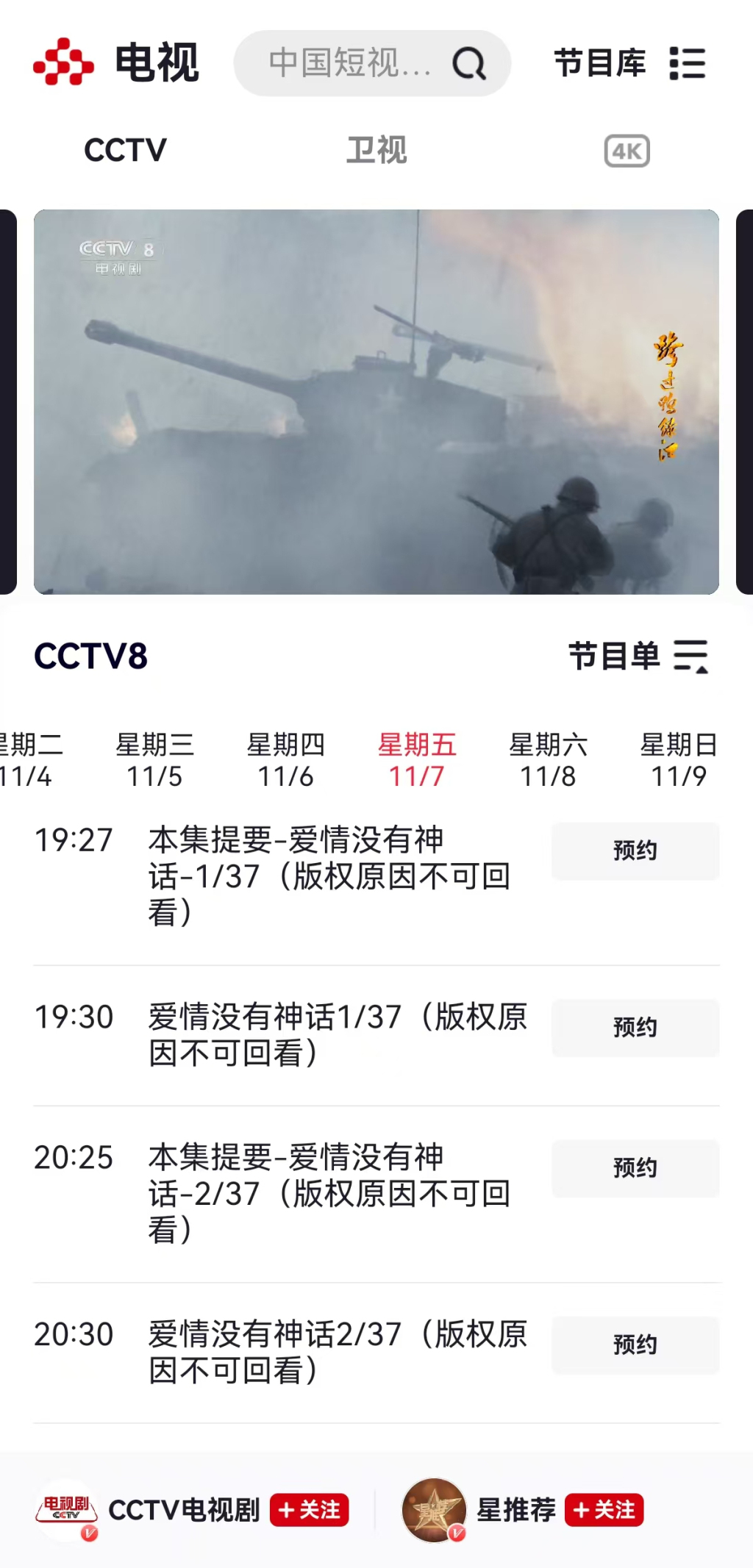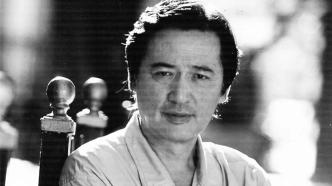
On July 26, the famous actor Zhao Youliang passed away in Tokyo, Japan at the age of 78. For more than 40 years, Zhao Youliang has successively worked in the China Children's Art Theater and the Central Experimental Theater, and served as the first director of the National Theater of China. However, in the eyes of the public, since the 1980s, Zhao Youliang's image of intellectuals portrayed in a series of TV dramas is more clear and perceptible, which is unforgettable for a long time.
Tian Qinxin, president of the National Theater of China, issued a condolence letter: "Principal Zhao Youliang is an outstanding performing artist, but also a very good art manager. The elegant image and superb acting skills have created classic characters one after another. He portrayed the dedicated doctor Bai Ming in the TV series "Homeland", and Qu Qiubai, the early leader of our party in the TV series "The Death of Qiubai". Shen Ruochen, an educated youth from Yunnan who returned to Shanghai in the TV series "Non Debt" and the editor of the magazine, and the forbearing and strong elder brother in the movie "Beautiful Shanghai" all left a deep impression on me."
Looking at Zhao Youliang's acting life, Shi Chuan, vice chairman of the Shanghai Film Association and professor of the Shanghai Theater Academy, believes that it is mainly reflected in two points: one is that the image of Chinese intellectuals was redefined on the TV screen in the early 1980s; man image.
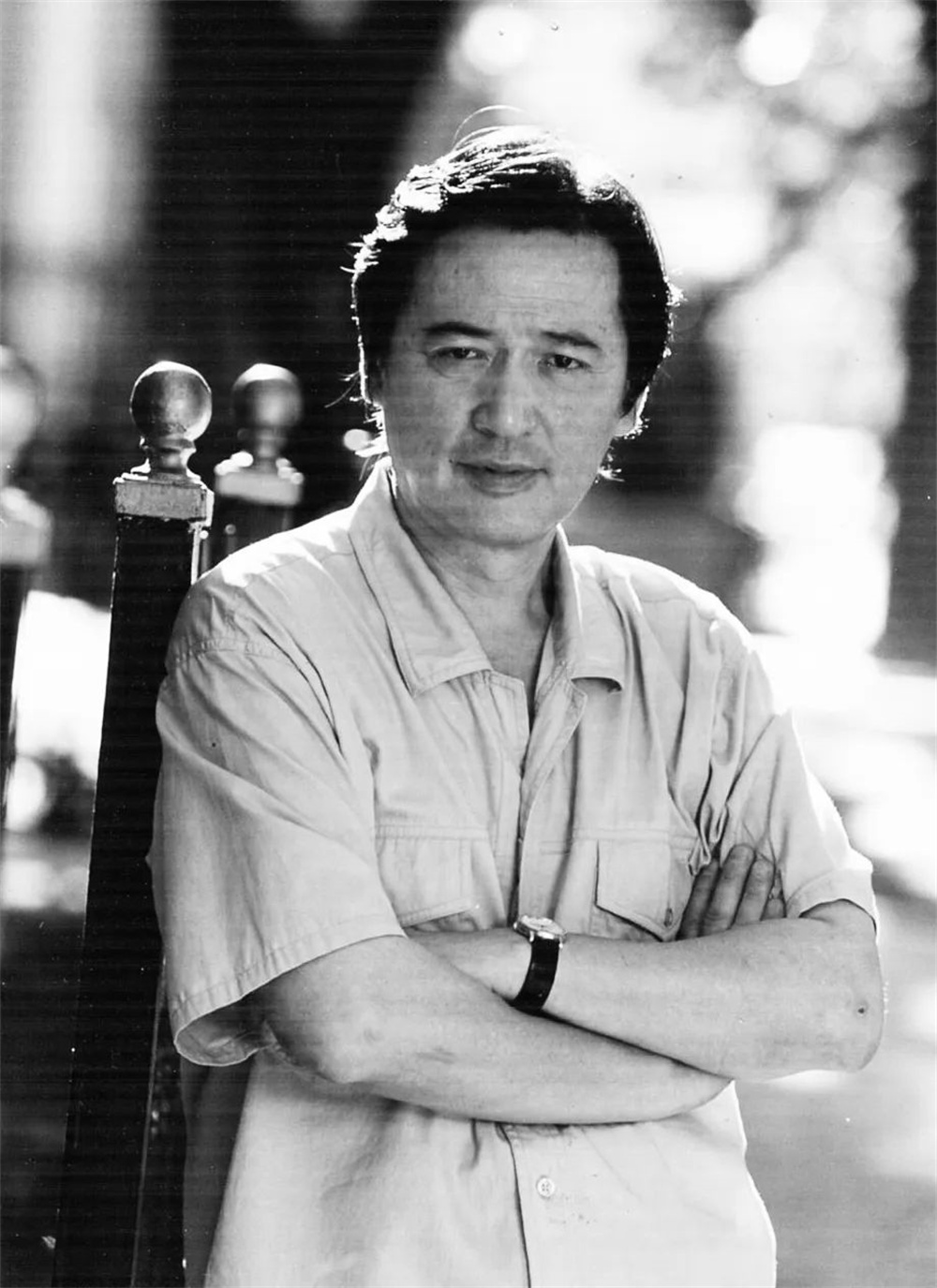
Zhao Youliang
Stuttering and humility in life, free and easy in front of the camera
After Zhao Youliang passed away, well-known screenwriter and drama critic Li Longyin posted a condolence post on his personal public account "Sanren Luantan". The article recalls that in 1984, director Guo Xinling of Shanghai TV station was planning to shoot the TV series "Homeland". Because the story took place in Beijing, the director hoped to use more actors from Beijing. "I helped the director find actors for her. Because I had just watched Zhao Youliang's movie "Village in the City", I had a very good impression. The performance was relaxed and the characters were very restrained, which fit the character of Bai Ming in the play. I thought of him .”
Li Longyin contacted Zhao Youliang, who was the vice president of the China Children's Art Theater at the time, through his brother's relationship in the Central Experimental Theater. "The first time I called Teacher Zhao, I was shocked. At that time, he didn't have a phone at home, so he answered it on a public phone. He had already read the script and hoped to play the role of Bai Ming, but when we communicated, he almost He stuttered every sentence, but what I didn’t expect was that when I brought him to meet the director for the first time, he suddenly stopped stuttering and could even communicate with the director in Shanghainese.”
After the filming of "Homeland" started, Zhao Youliang was performing Paul in the play "Paul Korchagin" at the China Children's Art Theater. The play was very heavy. Every night after the performance, I rushed to the crew of "Homeland" to rehearse, filmed a TV series the next morning, and rushed to the theater to perform a drama in the afternoon. Li Longyin recalled that Zhao Youliang had no airs of officialdom in the crew, "He rushed to the scene in time every day, and when the work was over, he always helped the choreography department with things, so that young people like us followed suit. I also had a role in the play, There was a scene where Teacher Zhao was going to be beaten, and I was really afraid that I wouldn’t be able to get into the scene, but during the audition, Teacher Zhao seemed willing to be beaten, and immediately pulled me into the scene.”
"But he also has the dignity of an intellectual, and he pays more attention to drama than the sky. At that time, a leader came to visit the crew, and during the dinner, someone coaxed him to perform a show, even if he said a line. Teacher Zhao blushed at that time and said , "It's delicious to eat, this is not a church. I——I won't act." Later, someone tried to persuade him again and again, and he threw the lunch box on the table, "I am a character, a character, and I have to prepare carefully before I can act. Just say something casually? Do you think you are playing a monkey?'" Li Longyin recalled that this was the only time he saw Zhao Youliang get angry in the crew.
"I wish there was a beautiful maple tree in front of my door..." Accompanied by the familiar theme song "I Wish", the TV series "Homeland" became popular all over the country after its broadcast in 1984, and CCTV immediately introduced it. broadcast. This play won the Feitian Award and the Golden Eagle Award that year, and the leading actor Zhao Youliang became an instant hit.
Shi Chuan, vice chairman of the Shanghai Film Association and professor of the Shanghai Theater Academy, also mentioned the play in an interview with The Paper. ""Homeland" was adapted from Su Shuyang's novella. The novel itself was very sensational. After being adapted into a TV series, it also caused controversy in the literary and art circles. During the "Cultural Revolution" period, the image of intellectuals was greatly impacted. In the works, they often appear as "problem characters", always saying that they are two-faced, disloyal to the revolution, and not firm in their stance. Zhao Youliang's Bai Ming has established a positive image of an intellectual in the new era on the screen, showing a generation of The simple patriotism of intellectuals. And this is especially in line with the social atmosphere in the early 1980s. At that time, ordering out of chaos, reform and opening up, and marching towards science, many tasks of the times were before people's eyes, and the intellectual class also rediscovered its historical position. They are also working people, part of the working class."
"At that time, in addition to "Homeland", there were also a number of works such as Pan Hong and Da Shichang's film "Man to Middle Age", which established a new tone for the presentation of the intellectual class, and they returned to the people again. At the same time, in addition to showing the selfless dedication of the family and the country, the love stories in these works have also begun to make people yearn. The love entanglements in "Homeland" show the integrity, tenderness, and romantic side of the intellectual class, which is definitely different from the previous heroes. The emotional world of the characters." Ishikawa said.
For audiences born in the 1980s, Zhao Youliang's screen image has long been fixed as "Good Dad, Bad Dad" in the TV series of the same name in 1988. Yin Litong, the vice chairman of the China Film Association and the director, recalled, "In 1988, I filmed the TV series "Good Dad, Bad Dad". When I was reading the script, who would play the father? The first thing I thought of was Mr. Zhao Youliang. His gentleness and elegance fit the character too well. In the play, an intellectual was shown in a hurry at home and was not good at housekeeping. It is hilarious. As for the children, he loves and disciplines the children, and his acting is very delicate and vivid. Mr. Zhao has a stuttering problem in life, but as long as he stands in front of the camera and shouts to start, he is like changing Be it someone, the lines and performances are all at the textbook level."
A "Shanghai-style man" with a single play style and exquisite shaping
Zhao Youliang was born in Shanghai. After graduating from the Acting Department of Shanghai Theater Academy in 1966, he was assigned to work in Beijing China Children's Art Theater in 1968. Although he appeared as a northern intellectual in many film and television dramas in the 1980s, after entering the 1990s, Zhao Youliang returned to Shanghai and successively filmed the TV series "Debt" (1994) and "The War of Seizing the Son" (1997) . Among them, "Negative Debt" is adapted from the novel of the same name by writer Ye Xin. The play tells the experience of five children who went from Xishuangbanna to Shanghai to find their biological parents and returned to Shanghai many years ago. It is worth mentioning that the Shanghai language version was used when the two TV dramas premiered in Shanghai.
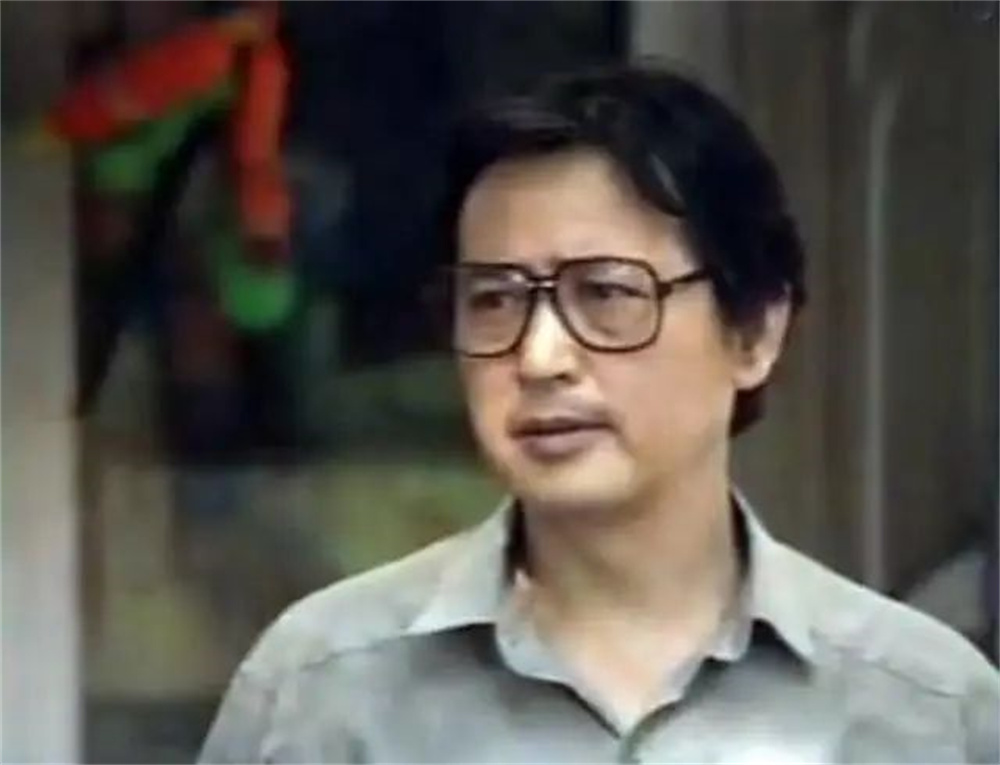
"Debt" stills, Zhao Youliang as Shen Ruochen
In 1992, with the establishment of the goal of reforming the socialist market economic system, Shanghai Pudong New Area was also established that year. "I saw Shenzhen in the 1980s, and Shanghai in the 1990s." Ishikawa said, "From the mid-1980s to the mid-1990s, Shanghai was the most aggrieved decade. Whether it was before liberation or the 30 years after liberation, Shanghai was the pride of the Republic. , but in the wave of reform and opening up, people were looking at Shenzhen and Guangdong, and Shanghai was gradually left behind. At that time, Shanghainese went to Shenzhen, went to Hainan, and went abroad. Film and television works, the most typical is the movie "Stock Crazy", people squeezed the bus to go to the Shanghai Stock Exchange. With the development of Pudong, Shanghai was on the eve of a new start."
In Ishikawa's view, "The TV series "Homeland" is not yet very regional, and it is a metaphor for the image of Chinese intellectuals as a whole. The geographical orientation of "Negative Debt" is very clear, and it reflects this anxiety. The handling is also more subtle and rational—self-cultivation, family governance, and peace of the world, from a small family to a large city. During the "Cultural Revolution", the educated youths in Shanghai jumped into the queue, and the children who stayed in the local area came to Shanghai after they grew up. , this is a problem that must be faced.”
And how to deal with the "debt" of personal history is also likened to how a city should get rid of its burden and travel lightly. "In the past, there was a saying, 'let go of the burden and start the machine'. After the 'Cultural Revolution', we are also talking about unity and looking forward. These words not only embody the philosophy of life, but also the inevitable logic for the society to accumulate strength and start again. In the works, it is shown in the way of the fate of the characters and the encounters of the characters."
There were many similar film and television works back then. Ishikawa gave examples, such as "Forty Not Confused" directed by Li Shaohong in 1992, and "Intruder" directed by Wang Xiaoshuai in 2014. "They all show a kind of history's forced intervention in reality. Your past experience and life are not the past. In "Forty Not Confused", Li Xuejian and Song Dandan play husband and wife. Facing the children left behind when they jumped in the queue in the Northeast, they finally chose Take a step back and the sky is brighter. This actually reflects that when a person reaches middle age, if he wants to live a good life in the second half of his life, he must deal with the problems in the first half of his life, and the final solution is nothing more than a compromise." Ishikawa said.
"The problems left over from history are difficult to deal with, especially children are their own flesh and blood, they are living beings, and many educated youths who have returned to the city have already married again. Facing such human torture, this topic is sharp and sensitive, so we must let people The tolerant, open-minded and understanding side is released. Shen Ruochen, the editor of "Legal System and Life" magazine played by Zhao Youliang, just played such a role. His daughter came to Shanghai from Yunnan to find relatives, and Zhao Youliang played a role of reconciliation among the crowd Yan Xiaopin plays his wife, who doesn't understand him very much, and behaves in every way. Shen Ruochen can only be submissive, behave with his tail between his legs, and minimize the intensity of conflicts in real life, showing a man's great forbearance And patience, to resolve the new problems in the family. It can be said that Shen Ruochen was the warm man on the screen at that time, and he successfully portrayed the image of a Shanghai-style husband and Shanghai father."
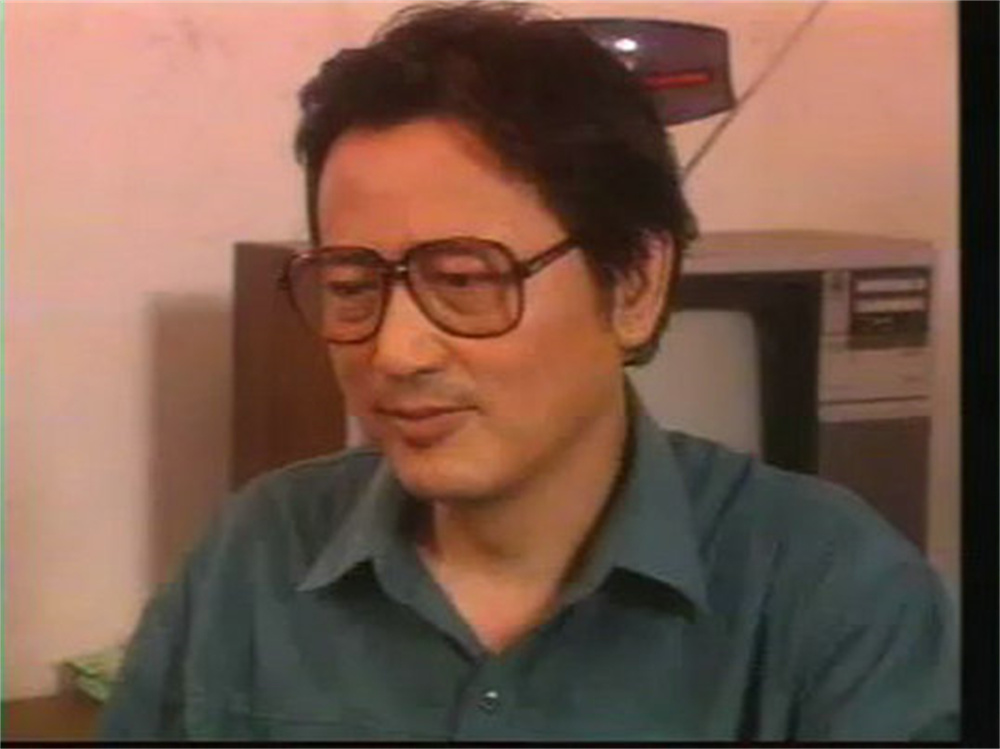
"Debt" stills
In Shi Chuan's view, the success of "The Debt" and the Shen Ruochen played by Zhao Youliang was a powerful counterattack to the society's downgrading of Shanghai men at that time. "With the decline of Shanghai's economic status in the 1980s and 1990s, there has been a trend in the cultural field, which is to stereotype the character of the city by dwarfing Shanghai men. In many sketches of variety shows back then, northern actors spoke sharply The voice is soft, as if this is a Shanghai man? There is an urgent need for another voice in the cultural field. Zhao Youliang may have become the new image endorsement of the city unconsciously. Shanghai people do not value profit over righteousness, but pay attention to the spirit of contract , despite the grievances, he is still facing the real difficulties of life and actively seeking solutions." The success of Zhao Youliang's performance is that he can show cowardice, but it is not annoying, and the audience will understand that he is being splinted. , Dilemma, but not angry.
"Director Huang Shuqin must have been quite culturally conscious back then. She also realized that the whole city of Shanghai was turning around at that time, so she took over this TV series." Speaking Shanghai dialect, "In the plot, the group of children who came to Shanghai to find their parents came from Yunnan, and they were at a loss when facing the new environment. These young actors did not understand Shanghai dialect at the time, and most of the actors who played the parents were from Shanghai. In the film, the children watched their elders speak Shanghai dialect, which exacerbated their sense of strangeness and discomfort to the city, and this is the effect the director wanted. I remember that Shanghai actors such as Zhao Youliang, Wang Yinghua, and Jin Xin played different social classes. They read their lines in Shanghai dialect on the set, and the children from Yunnan couldn't understand what they were saying at all, so they naturally showed inner tension and anxiety, and kept asking adults 'what are they talking about' So there is no need for them to act at all, and the emotional tension that the characters should have is naturally there. In the past, only leaders in film and television dramas could speak dialects to reflect the characters' personalities. , can help actors enter the role and shape the character."
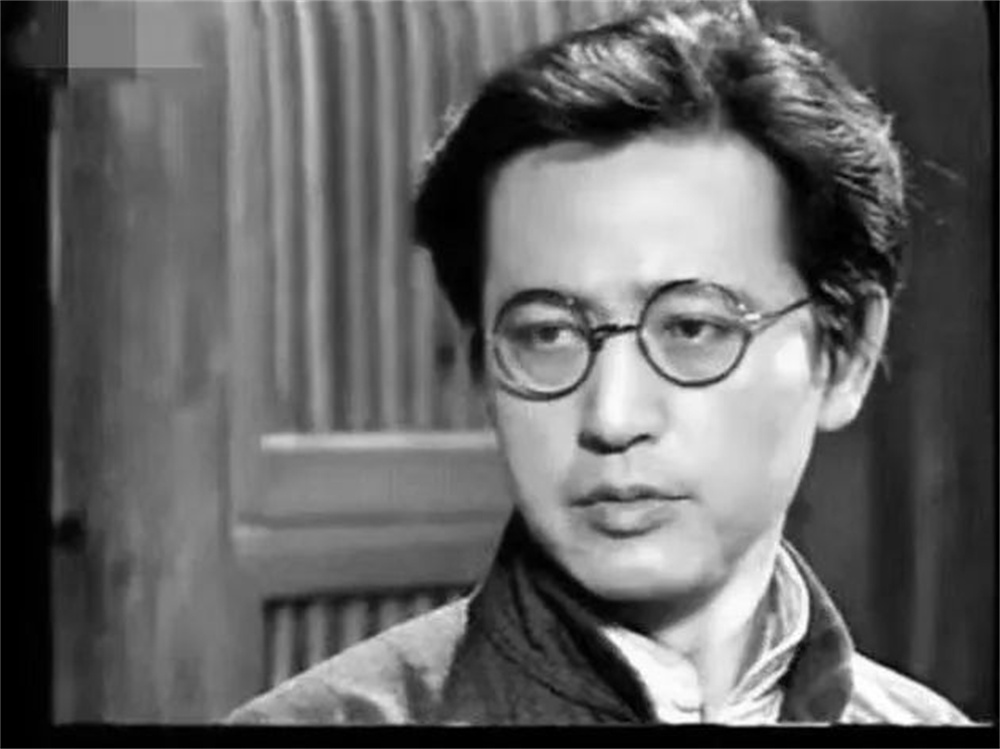
"The Death of Qiubai" Stills, Zhao Youliang as Qu Qiubai
Having played the image of an intellectual all his life on screen and on the screen, Zhao Youliang's acting path has always been relatively fixed. "Including his role as the martyr Qu Qiubai in the TV series "The Death of Qiubai", he also showed the character's elegant and noble demeanor. Now when it comes to whether he is a good actor or not, it seems that a wide range of roles is a necessary condition, but it is not necessarily the case. 'Drama Emperor' Shi As Hui said, an actor cannot play any role, he can only find a role that suits him. Shi Hui is very good at playing low-level people in society, but it is not suitable for him to play a university professor or a military commander. The same is true for Zhao Youliang. He doesn't have a wide range of roles, and his image will always be like that, a bit sloppy, messy hair, a little hunchback, always polite, with his chest bowed and his head bowed, and a very humble look, which is almost the opposite of his own temperament and image The roles that match are not wide, but he is definitely a good actor, and he can handle each role with precision." Ishikawa said.


